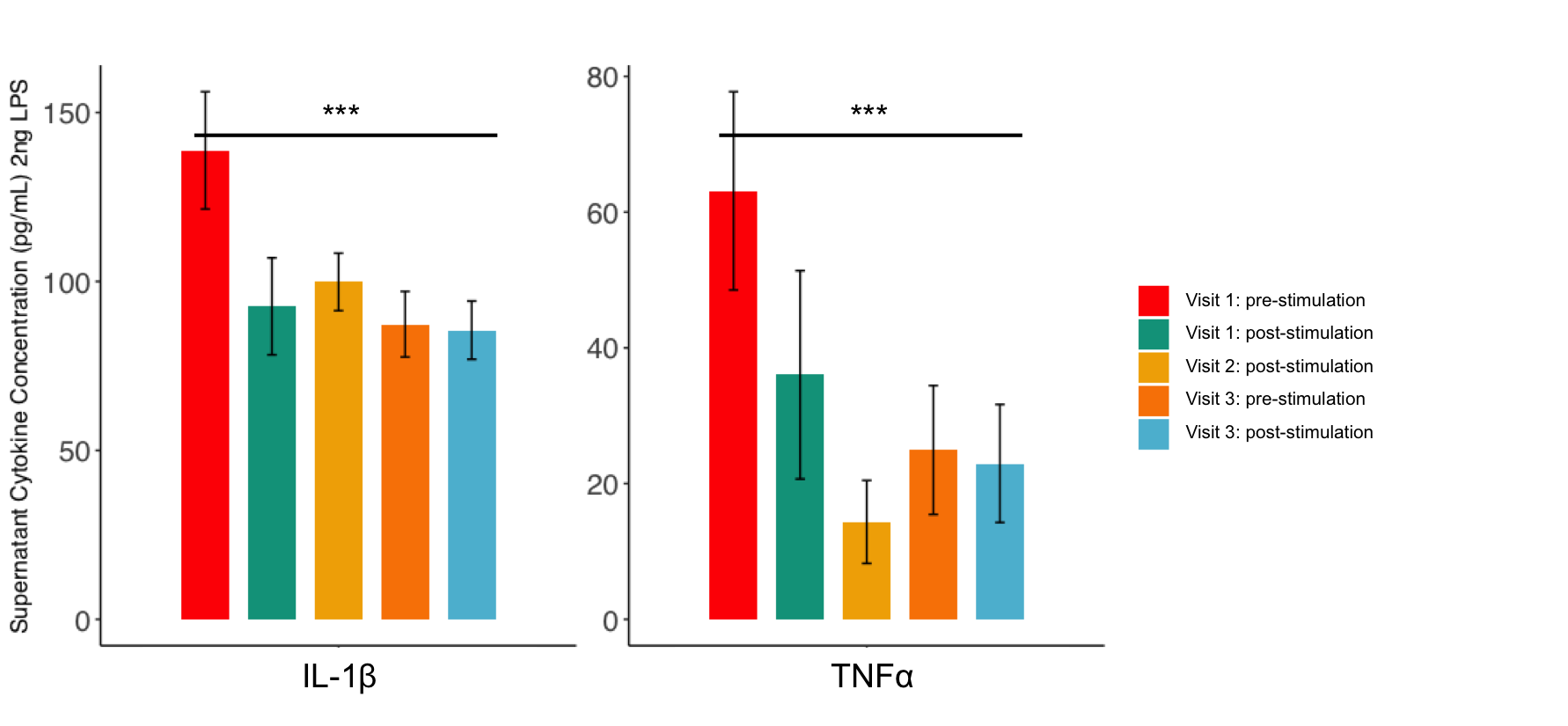Session Information
Session Type: ACR Poster Session A
Session Time: 9:00AM-11:00AM
Background/Purpose: Primary Sjšgren’s syndrome (pSS) sufferers have rated chronic fatigue as the most important symptom needing improvement and the main contributing factor to the loss of work productivity. Emerging data suggest cross-talk exists between the autonomic nervous system and the immune system via the vagus nerve in particular. The gammaCore device (electroCore), was developed to deliver stimulation of the cervical vagus nerve non-invasively, and has been CE marked for the treatment of epilepsy and migraine and has recently been FDA approved for the acute treatment of episodic cluster headache. In this study, we use the gammaCore device to dissect the relationship between the vagus nerve, fatigue and immune responses in pSS.
Methods: Fifteen female pSS subjects fulfilling the American European Consensus Group Classification criteria (2002) were included. At baseline, blood was drawn before and after non-invasive vagus nerve stimulation (nVNS). The subjects were then instructed to use the gammaCore device twice daily (2 min. over each carotid artery). The participants were followed up at day 7 and Day 28. At each visit, blood was drawn and patient reported outcome measures (PROMs) were collected including EULAR SjogrenÕs syndrome Patient Reported Index (ESSPRI), Profile of fatigue (PRO-F), visual analogue scale (0-100 cm) of abnormal fatigue and Epworth Sleepiness Scale (daytime sleepiness). Whole blood samples were stimulated with 2ng/mL Lipopolysaccharides (LPS) or RPMI-1640 as control. After 24 hours, the levels of IFNγ , IL12-p70, TNFα , MIP1a, IFNa, IL-10, IL-1β, IL-6 and IP10 were measured in the supernatants by cytometric bead array (BD). In addition, whole blood cell subset proportions were profiled using flow cytometry.
Results: PRO-F, and Daytime sleepiness were significantly reduced across three visits. Trends of improvement were also observed in Abnormal fatigue VAS, ESSPRI-Dryness and ESSPRI-Physical fatigue subscales. Participants who appeared to have a sustained reduction in fatigue related PROMs over the study period concurrently had a significantly higher proportion of T-cells at most time points. Cytokine production, particularly TNFα by whole blood cells upon LPS stimulation was reduced over the period of device use. Additionally, TNFα and IL-1β levels were significantly reduced after the first device use compared with pre-VNS.
Conclusion: To our knowledge this is the first study into the effects of nVNS in pSS. These preliminary observations suggest that in some individuals, nVNS may reduce clinical symptoms of fatigue, which could be underpinned by biological changes detectable in the whole blood.
To cite this abstract in AMA style:
Tarn J, Legg S, Mitchell S, Simon B, Ng WF. The Effect of Non-Invasive Vagus Nerve Stimulation on Fatigue and Immune Responses in Patients with Primary Sjögren’s Syndrome [abstract]. Arthritis Rheumatol. 2017; 69 (suppl 10). https://acrabstracts.org/abstract/the-effect-of-non-invasive-vagus-nerve-stimulation-on-fatigue-and-immune-responses-in-patients-with-primary-sjogrens-syndrome/. Accessed .« Back to 2017 ACR/ARHP Annual Meeting
ACR Meeting Abstracts - https://acrabstracts.org/abstract/the-effect-of-non-invasive-vagus-nerve-stimulation-on-fatigue-and-immune-responses-in-patients-with-primary-sjogrens-syndrome/

